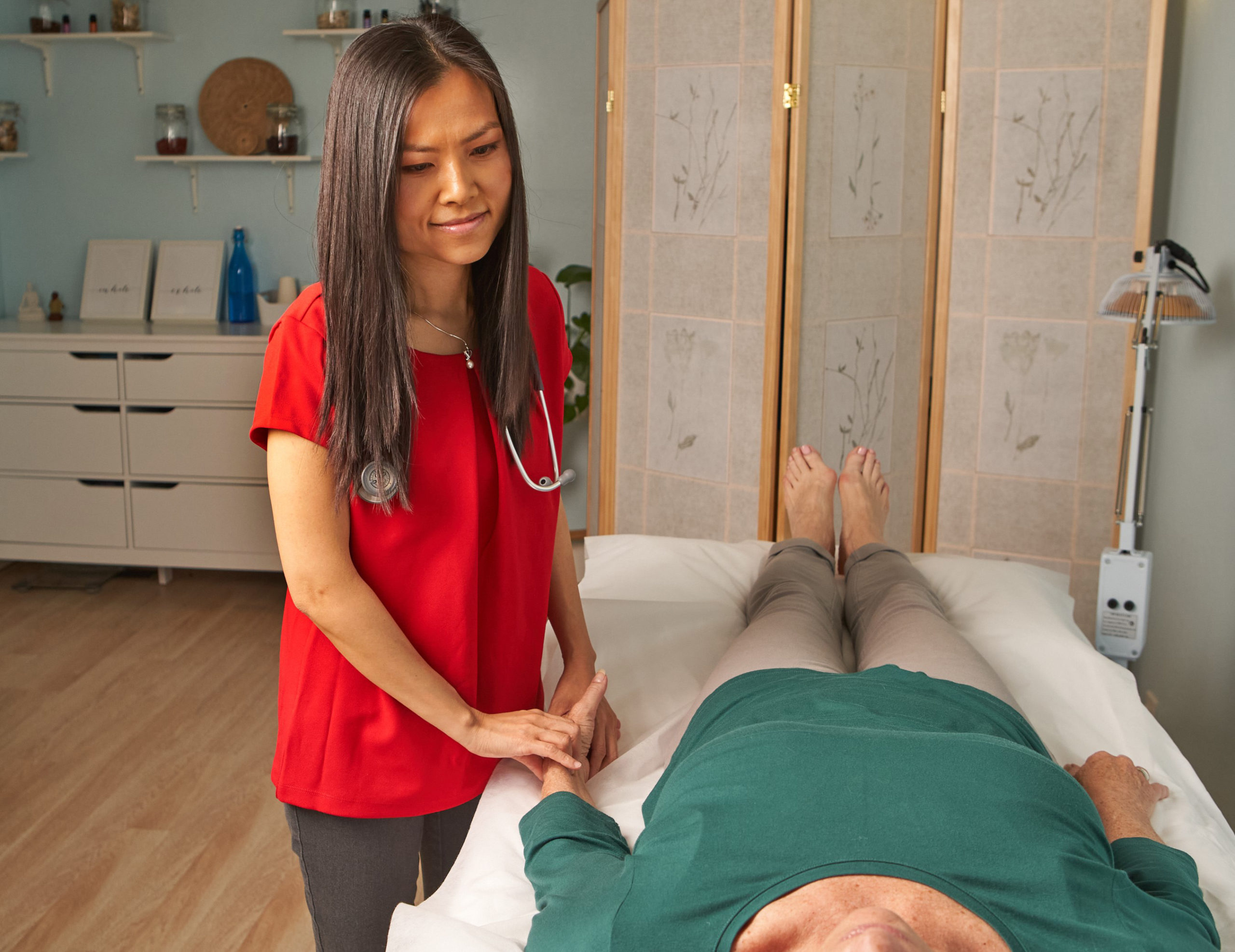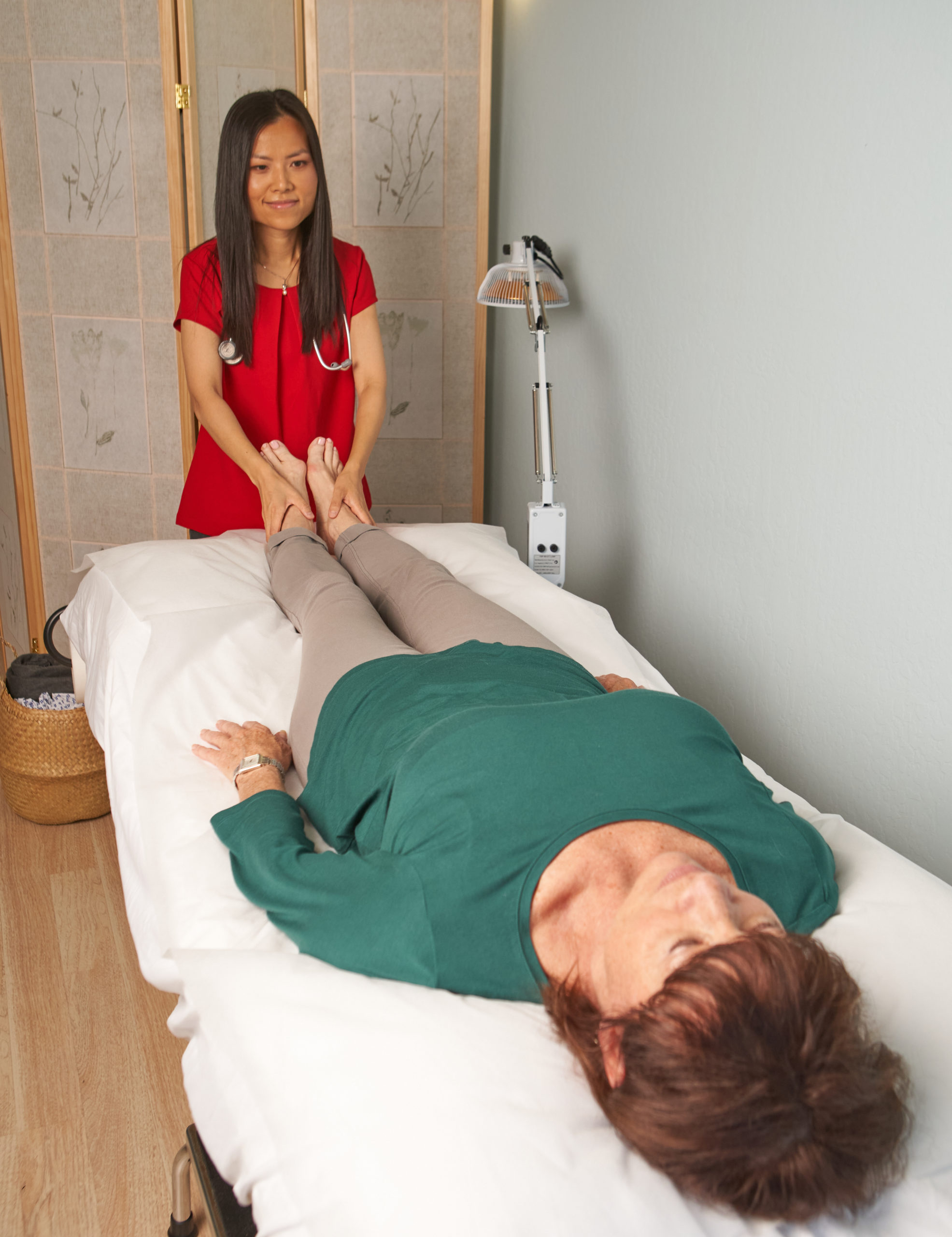Traditional Chinese Medicine (TCM) encompasses ancient Chinese healing techniques that include acupuncture, herbal medicine, qi gong, tai chi, dietary therapy, moxibustion, cupping, gua sha, and tuina.
The goals of Traditional Chinese medicine are to:
- prevent or heal disease by maintaining or restoring yin yang balance
- keep the normal flow of Qi unblocked
- maintain or restore optimal physical and mental health
There are many dimensions of TCM therapy; typical treatments include acupuncture treatment combined with Chinese herbal medicine and dietary or lifestyle recommendations.
FAQ
A traditional Chinese medicine practitioner is trained to diagnose and treat a range of conditions using Traditional Chinese Medicine principles and treatments. Treatments may include acupuncture, herbal medicine, dietary and lifestyle advice, cupping therapy, gua sha, tuina, moxibustion, Qi Gong and Tai Chi exercises.
Western medicine provides diagnosis through lab tests and it focuses on eliminating symptoms. Chinese medicine focuses on bringing the whole mind, body, and spirit back into balance and recognizes the body as one interconnected system.
Yes! Chinese medicine can treat many conditions successfully. Chinese medicine is an ancient healing system that has been around for at last 2,200 years, although the earliest known written record of Chinese medicine is the Huang Di Nei Jing (The Yellow Emperor’s Inner Classic) from the 3rd century BCE.
Absolutely! Chinese medicine is very effective for anxiety.
Chinese medicine can help with weight loss indirectly by addressing the root of the problem. For example, acupuncture and herbs, along with changes in diet and an exercise plan, can help curb appetite, assist the digestive system, balance hormones, and reduce stress level – all of which can support weight loss.
Yes! Chinese medicine is both safe and effective for menopause. Chinese medicine can help alleviate many menopausal symptoms, such as hot flashes, night sweats, chills, vaginal dryness, insomnia, and mood changes.


